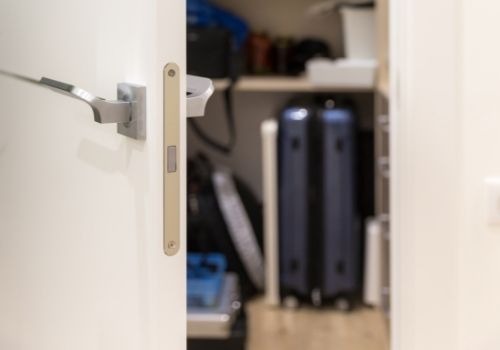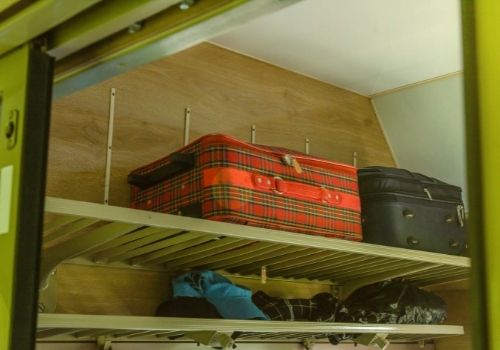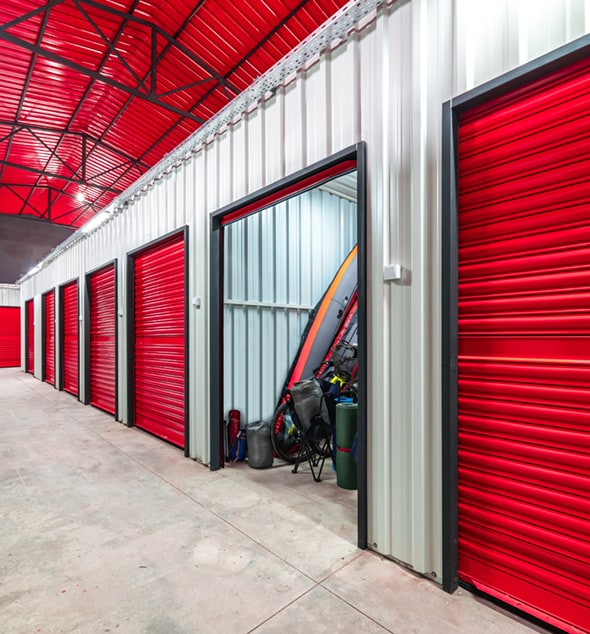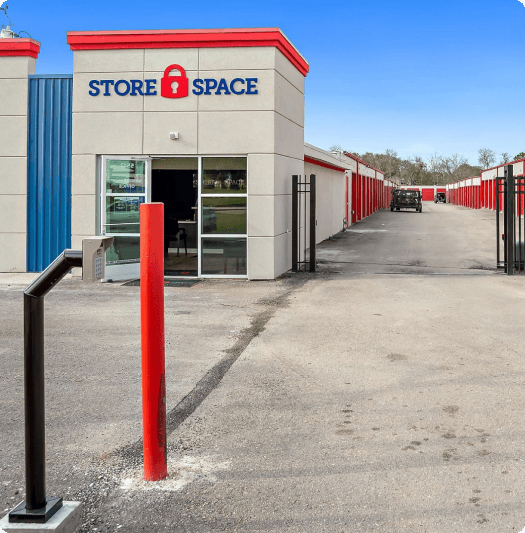8 Expert Luggage and Suitcase Storage Tips

Are you eager to embark on your next adventure? Travel the world, explore new places, and experience new cultures? Before you head out, your suitcase will need to be in tip-top shape.
Make sure your luggage is always ready for adventure by storing it correctly in between trips! We’ve created a guide including tips to prep your suitcase for storage and unique ways to keep it out of the way until you need it. Keep reading for eight tips on how to store luggage.
Prep your Suitcases for Storage
Whether you’re storing your luggage short- or long-term, there are a few steps you just can’t skip. Ensure your suitcases stay in great condition and prep them before storage!
Clean your luggage

Traveling takes a toll on luggage. Suitcases gather dirt from the parking lot, get scuffed on airport conveyor belts, and jostle around in cargo bays. But, don’t worry. With just a few cleaning tips, your suitcase will be good as new! Be sure to check for the manufacturer’s instructions before cleaning your suitcase.
Cleaning the exterior of your suitcase
If you have a hard-sided suitcase, simply wipe it down with a washcloth and gentle cleanser. Use an eraser cleaning pad to get out scuffs or paint marks from conveyor belt bumpers.
For a soft-sided suitcase, use soap, water and a soft brush to pull up the dirt. (Only use a small amount of soap.) Then wipe off any remaining soap with a damp towel.
Don’t ignore the handles and wheels of your luggage! Wipe them down with a disinfecting wipe or microfiber cloth and all-purpose cleaner.
Cleaning the interior of your suitcase
Before cleaning the inside of your suitcase, you have to completely empty it out. If your suitcase isn’t too dirty inside, spray some air freshener and let it sit in the sun for a few hours.
If anything spilled in your suitcase, wipe down the areas with soap and water, and apply a stain remover if necessary. Let dry, then vacuum the interior of your luggage. Find even more tips to clean your suitcases.
Let it dry!
One of the most important steps in preparing your luggage for storage is drying it out. Any trapped moisture can result in mold or mildew growth—which is the last thing you want to see when you’re packing for your vacation last-minute! Let your suitcase dry completely after cleaning and add silica packets to further prevent mildew in storage.
Zip your luggage
This may seem obvious, but in order to conserve the most space, you need to compress your suitcase as much as possible. So, zip up the expandable areas and fold all the inner pockets.
Cover your suitcase
After cleaning your suitcase, be sure to cover it with a plastic bag or luggage cover to help prevent dust build-up and keep it clean. Make sure to cover or wrap your luggage loosely, as covering it too tightly can trap moisture and lead to mold.
How to Store Your Luggage

Now that your suitcase is clean and fresh, it’s time to store it. But, where? Here are some of our favorite luggage storage ideas:
1. Under your bed
The space beneath your bed is the perfect spot to keep your luggage short term. Don’t forget to cover or loosely wrap it in a plastic bag. If your luggage is too tall to fit under the bed, use bed risers to create more storage space.
2. Nesting dolls
Conserve space by storing your carry-on and small suitcases inside larger luggage. You can also fold and tuck away duffel bags and totes in the smallest suitcase.
If you travel often, this storage method may be more of a burden than a convenience. Frequent travelers may need luggage quickly, and taking your carry-on out of three other suitcases can be tedious. This storage idea is beneficial for those who don’t travel often.
3. Use your suitcase for storage
Your suitcase is essentially an empty box you put things in while you travel—so why not use it as storage when you’re at home? Store travel products in your luggage or other random items like extra blankets, off-season clothes or bedding.
Pro tip: Use this tip in conjunction with Tip 4 to really maximize your space.
4. In the closet

The closet is a great place to keep your suitcase accessible but out of the way. Place it at the very top of your closet, lay it on the floor under hanging items, or set it off to the side against the wall. You can use the nesting doll technique or store off-season clothes in it to save more space if you have a small closet.
5. Hang luggage
If you have empty wall space either in your closet or in a utility pantry, consider hanging your luggage from pegs or hooks up high. This storage method conserves space, but it’s important to keep your suitcase as light as possible to avoid damaging the handles. Don’t nest suitcases in each other, and ensure the luggage is empty.
6. Display your suitcases
If you’ve invested in your suitcases and found a luggage set you love, we understand if you want to show it off! Instead of storing it out of the way, put it where it can be seen. Especially if you have vintage-inspired luggage (that’s in right now), consider stacking a few suitcases on top of each other, putting them above the kitchen cabinets, or setting them under a table. Here are a few great ideas to decorate with suitcases!
7. Avoid humid areas
It’s crucial that your suitcase is completely dry before storing, but it’s also important to keep your luggage out of a humid environment. Keep your luggage in a cool, dry place with a constant temperature and some airflow. Avoid storing your suitcase in an attic or basement, but if you must, be sure to use a dehumidifier or silica packets.
8. Think about a storage unit
If you’re struggling to find the perfect place to store your luggage at home, it may be a good idea to consider self-storage. A climate-controlled storage unit is an ideal place to keep your luggage. These units have regulated temperatures to help mitigate damage from humidity.
Suitcase Storage FAQs
How do you store luggage to prevent mold?
Prevent mold and mildew by ensuring your suitcase is completely dry before storing, and putting silica packets in your luggage to absorb moisture. You should also avoid storing your luggage in humid environments.
Can suitcases be stored in the garage or attic?
You can store your suitcase in the garage or attic, but remember to purchase a dehumidifier or silica packets to minimize moisture and prevent mold.
How do you store luggage in small spaces?
If you live in a small space, consider storing your suitcase under the bed or in the closet or hanging it on the wall. If you want to free up space in your home, put your luggage in self-storage until you need it.
Now You Can Storage Your Luggage Like a Pro
Whether you’re traveling a few states away or across the world—we hope this guide has helped you ensure your suitcase is ready for the journey.
If you need more space for your luggage, check out Store Space for secure, climate-controlled storage near you. Just use our storage location finder to locate your nearest facility!







